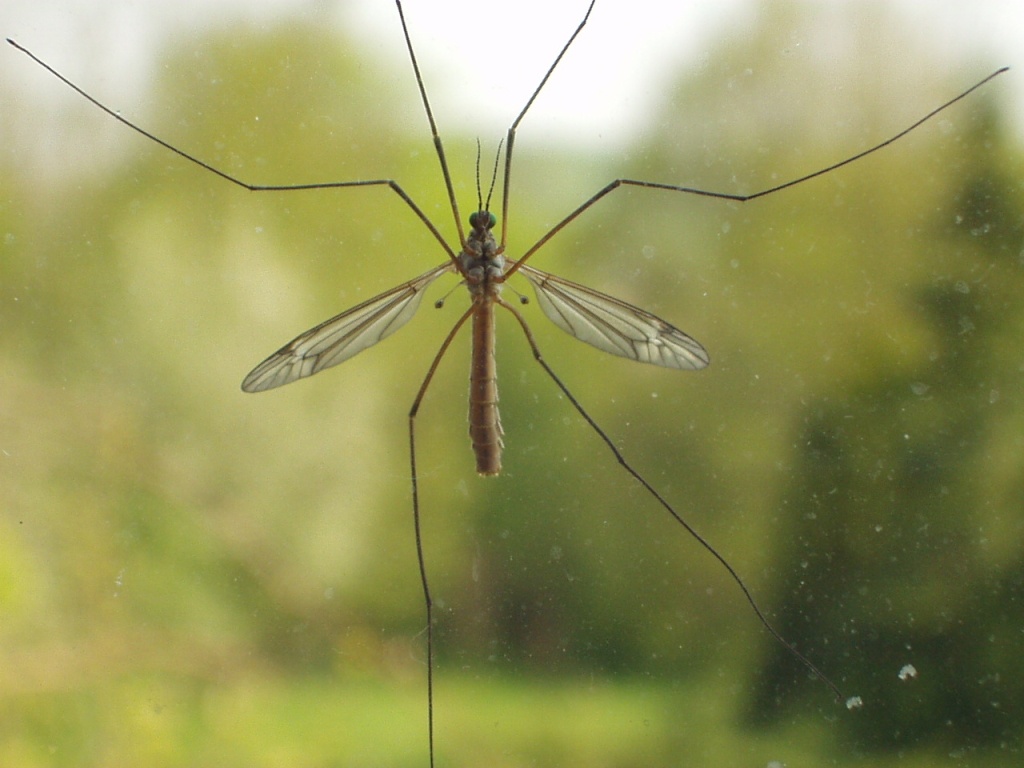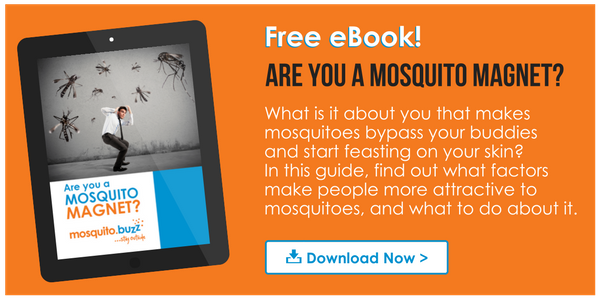
Attack of the giant, alien mosquito? Nope - no need to worry! What you see pictured above is a European crane fly, a turfgrass pest (and non-bloodsucker) found across many regions of Canada.
These pests live in the top layer of soil and feast on the root hairs, blades and crowns of lawn grasses, and while they can cause extensive damage to your property in their larvae stage, they don't consume blood and are not considered a danger to humans or pets in any way, shape or form.
Remember: It's Not a Mosquito
European crane flies look like mosquitoes with exceptionally long wings and legs, but they don’t bite like mosquitoes and are not great at flying. You’ll find them congregating on window and door screens, fences, sides of buildings, etc, which can be nerve wracking for some as they look like they're trying to get in and cause a ruckus in the house! Each fall, the female adults can lay between 200 – 500 eggs and they’ll hatch into larvae and stay in the soil until they emerge as adults the following late summer and fall.
The larvae are called leatherjackets. They somewhat resemble maggots in shape, but are light grey to greenish in colour and grow to 1.5 to 2 inches in length. They have no legs and taper at each end. European crane flies take about one year to mature, and it’s during the third and fourth larvae stage where lawn damage become visible – typically in May and June.
What Conditions Do They Favour?
European crane fly larvae prefer moderately wet soil. When heavy spring rains flood the soil, the larvae are forced to the surface where they are easy pickings for birds or end up on pavement where they dry out and die. They can’t survive under water and can’t survive in overly dry soil either.
They feed on top of the thatch on the blades of grass and by late spring move into the soil where they won’t emerge again until September as adults. Later in the season, you may find the empty casings (shells) of the larvae on top of the lawn.
How Do I Deal With A Crane Fly?
As mentioned above, crane flies pose no threat to humans and pets, so there is really no need to panic when one inevitably shows up on your property. Just shoo them along, or ignore them, and go about your day!
If you have a mosquito problem, however, be sure to talk to our team of mosquito and tick control gurus for more information on barrier protection for your property.



